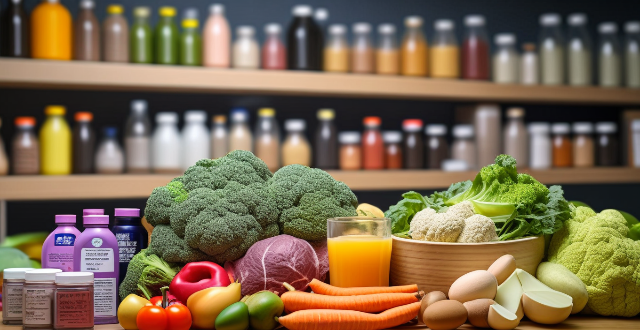Timing is crucial for nutrient intake around workouts to maximize benefits and improve health. Pre-workout meals should include carbs, protein, and healthy fats, while staying hydrated is essential. During long workouts, snacks and sports drinks can maintain energy and prevent dehydration. Post-workout recovery focuses on replenishing glycogen stores with carbs, supporting muscle repair with protein, and rehydrating. Proper timing of meals and snacks before, during, and after exercise optimizes workout benefits and overall fitness.

The Role of Timing in Consuming Nutrients Around Workouts
Timing is a crucial factor when it comes to consuming nutrients around workouts. Properly timing your meals and snacks can help maximize the benefits of your exercise routine and improve your overall health and fitness level. In this article, we will discuss the importance of timing in consuming nutrients before, during, and after workouts.
Before Workouts
Pre-Workout Meal
It is important to eat a pre-workout meal that provides energy and helps you perform at your best. This meal should be consumed approximately 2-3 hours before your workout to allow for proper digestion. Here are some key nutrients to include in your pre-workout meal:
- Carbohydrates: Carbohydrates are the primary source of energy for your body during exercise. Eating complex carbohydrates such as whole grains, fruits, and vegetables can provide sustained energy throughout your workout.
- Protein: Including protein in your pre-workout meal can help build and repair muscle tissue. Good sources of protein include lean meats, fish, eggs, dairy products, and plant-based options like beans and lentils.
- Healthy Fats: Healthy fats can provide long-lasting energy and help reduce inflammation. Examples of healthy fats include avocado, nuts, seeds, and olive oil.
Hydration
Staying hydrated is essential for optimal performance during workouts. Drink plenty of water throughout the day, especially on days when you plan to exercise. Aim to drink at least 8 ounces of water 30 minutes before your workout to ensure adequate hydration.
During Workouts
Snacks and Hydration
If your workout lasts longer than an hour, it may be beneficial to consume a small snack or sports drink to maintain energy levels and prevent dehydration. Look for snacks that contain easily digestible carbohydrates, such as fruit or energy bars, and sports drinks that provide electrolytes and fluid replacement.
After Workouts
Post-Workout Recovery
Recovery is just as important as the workout itself. Consuming the right nutrients within 30 minutes to an hour after your workout can help replenish energy stores, reduce muscle soreness, and support muscle growth and repair. Here are some key nutrients to include in your post-workout recovery meal:
- Carbohydrates: Replenishing glycogen stores is essential for recovery. Eating carbohydrates after your workout can help restore these stores and provide energy for future activities. Good sources of carbohydrates include whole grains, fruits, vegetables, and dairy products.
- Protein: Protein is crucial for muscle repair and growth. Consuming protein soon after your workout can help stimulate muscle synthesis and reduce muscle breakdown. Good sources of protein include lean meats, fish, eggs, dairy products, and plant-based options like beans and lentils.
- Hydration: Rehydration is essential for recovery. Drink plenty of water or a sports drink to replace lost fluids and electrolytes.
In conclusion, timing plays a significant role in consuming nutrients around workouts. By properly timing your meals and snacks before, during, and after exercise, you can maximize the benefits of your workouts and improve your overall health and fitness level. Remember to focus on carbohydrates, protein, healthy fats, and hydration to support your body's needs during each phase of your workout routine.